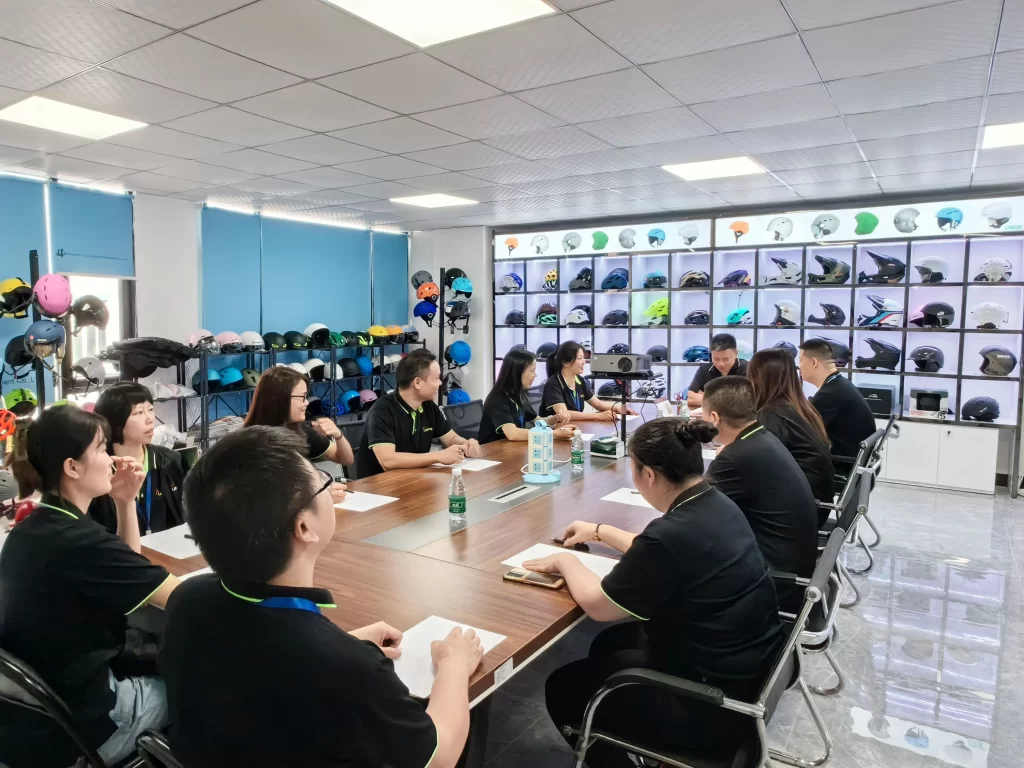Introduction:
Cycling has become an increasingly popular mode of transportation and leisure activity, enjoyed by people of all ages worldwide. Alongside the joy of riding, safety remains paramount, with bike helmets serving as crucial protective gear. This article delves into the significance of cycling and bike helmets, highlighting the role of helmet factories in ensuring safety standards, innovation, and promoting cycling culture.
The Evolution of Cycling Helmets:
Cycling helmets have undergone significant evolution over the years, transitioning from basic designs to advanced models engineered for optimal protection and comfort. The earliest helmets were simple leather caps, offering minimal protection. However, with advancements in materials and technology, modern cycling helmets feature lightweight yet robust construction, aerodynamic designs, and impact-absorbing foam liners. These innovations aim to provide cyclists with maximum safety without compromising on style or performance.

Safety First: The Importance of Bike Helmets:
Cycling is an enjoyable and healthy activity, but it comes with inherent risks, especially when sharing the road with motor vehicles. Bike helmets play a crucial role in reducing the risk of head injuries in the event of accidents or falls. Studies have shown that wearing a helmet can significantly decrease the likelihood of head trauma and even save lives. As such, helmet usage is not just recommended but mandated by law in many jurisdictions, emphasizing the importance of prioritizing safety while cycling.
Quality Assurance in Helmet Manufacturing:
Behind every reliable cycling helmet is a reputable helmet factory dedicated to upholding stringent quality standards. These factories employ skilled technicians and engineers who meticulously design, test, and produce helmets that meet or exceed safety regulations. Quality assurance protocols ensure that each helmet undergoes rigorous testing for impact resistance, ventilation, and fit before it reaches the market. By adhering to strict manufacturing processes, helmet factories instill confidence in cyclists regarding the reliability and effectiveness of their products.
Innovation and Technology:
Helmet factories are hubs of innovation, constantly exploring new materials and technologies to enhance helmet performance and comfort. From advanced impact-absorbing foams to aerodynamic designs and adjustable retention systems, ongoing research and development efforts aim to push the boundaries of helmet design. Additionally, helmet factories collaborate with industry partners, such as cycling teams and professional athletes, to gather real-world feedback and refine their products for optimal performance.
Promoting Cycling Culture:
Beyond manufacturing helmets, helmet factories play a vital role in promoting cycling culture and safety awareness. Through educational initiatives, community outreach programs, and sponsorship of cycling events, these factories advocate for safe riding practices and the importance of wearing helmets. By fostering a culture of safety and responsibility, helmet factories contribute to creating a more inclusive and cyclist-friendly environment.
The Role of Cycling & Bike Helmet Factories:
Cycling and bike helmet factories serve as pillars of safety and innovation within the cycling community. Their commitment to producing high-quality helmets not only protects cyclists but also contributes to the overall growth and sustainability of cycling as a sport and mode of transportation. By prioritizing safety, embracing innovation, and promoting cycling culture, helmet factories play a pivotal role in shaping the future of cycling.
Conclusion:
In conclusion, cycling and bike helmet factories play a crucial role in ensuring the safety and well-being of cyclists worldwide. Through adherence to strict quality standards, ongoing innovation, and promotion of cycling culture, these factories uphold the highest safety standards while contributing to the growth and popularity of cycling. As cyclists continue to embrace the joys of riding, helmet factories remain steadfast in their commitment to protecting riders and promoting a safe and enjoyable cycling experience for all.









